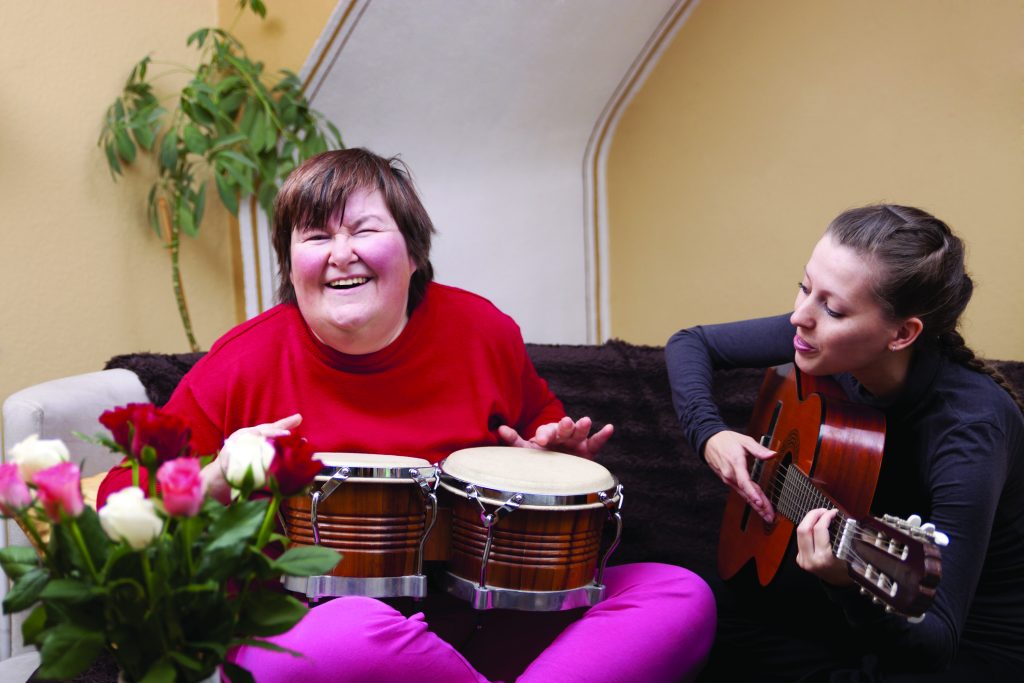
If your child learns differently, music therapy may be beneficial for them in a multitude of ways. PHOTO COURTESY DARLA ANTIPINA, DREAMSTIME.COM
A guide to Los Angeles programs using music to support children with autism, ADHD, and other developmental differences.
Rhythms, melodies and harmonies are not only universally enjoyed but can be life changing. Music can lift us up and help us focus and relax. Music also helps people express themselves, interact with others, manage challenging emotions, improve cognitive abilities and more. As such, musical therapy, a clinically proven and evidenced-based practice harnessing the power of music to address a variety of needs, is making headway across neurodiverse communities.
L.A. Parent decided to investigate this growing form of therapy at top organizations throughout Los Angeles. We learned students don’t need any music experience to receive or benefit from music therapy, and that music therapy differs from music education, as music therapy sessions are led by board-certified music therapists focused on improving clients’ lives through music.
If you have a child in your family who learns differently, music therapy may be worth a look. Here are a few organizations across Greater Los Angeles that provide music therapy services.
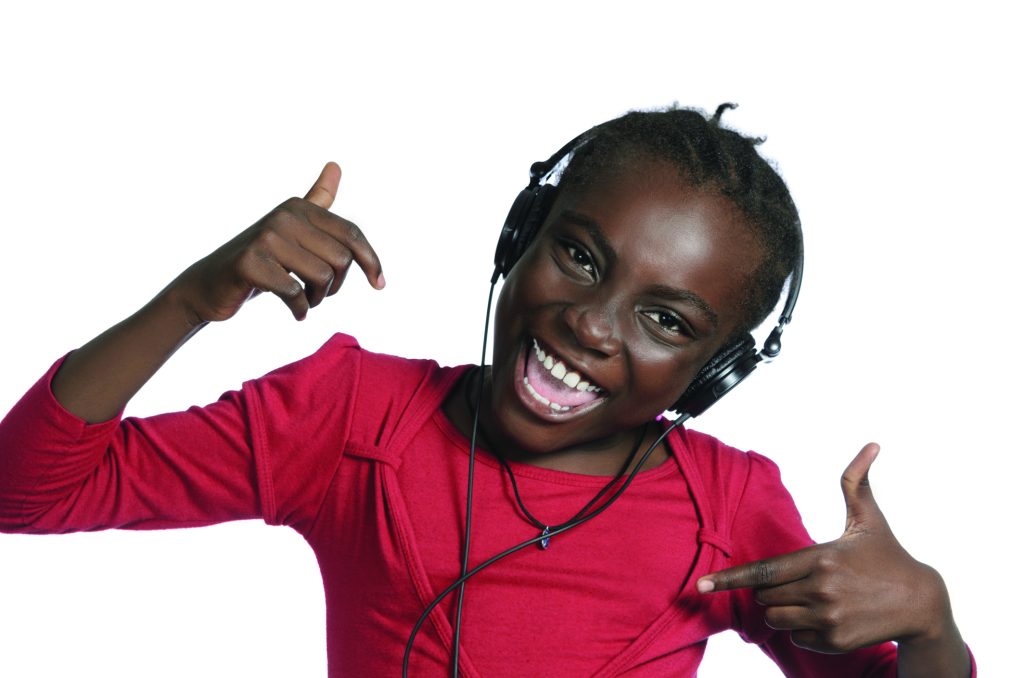
The Help Group is a leading nonprofit supporting individuals with autism, learning and developmental disabilities, ADHD and emotional challenges. It supports neurodiverse clients and their families through its network of specialized day schools, comprehensive mental-health services, vocational training and community programs across L.A. County. While the center does not feature music therapy services, music is woven into its programs because, as Dr. Laurie Stephens, senior director of Autism & Clinical Services, explains, “We believe very, very strongly in the power of music.”
Music opportunities are available in its after-school programs and classes at all its schools. For example, in its Kids Like Me programs, children can learn an instrument, sing, explore music appreciation and dance. The organization also is the West Coast partner for Music for Autism, hosting interactive, inclusive concerts for neurodiverse kids throughout the year. These concerts invite kids to go on stage, sing, dance and touch instruments in a flexible and welcoming environment. The most recent Music for Autism concert was held at The Help Group’s Family Fun Day, a free, all ages community event on Saturday, Sept. 13, at its Sherman Oaks campus.
Stephens encourages parents to view music as a tool that “can help open the door to so many other skills and interests. The more you expose your child to these opportunities, the faster their skills are going to develop.”
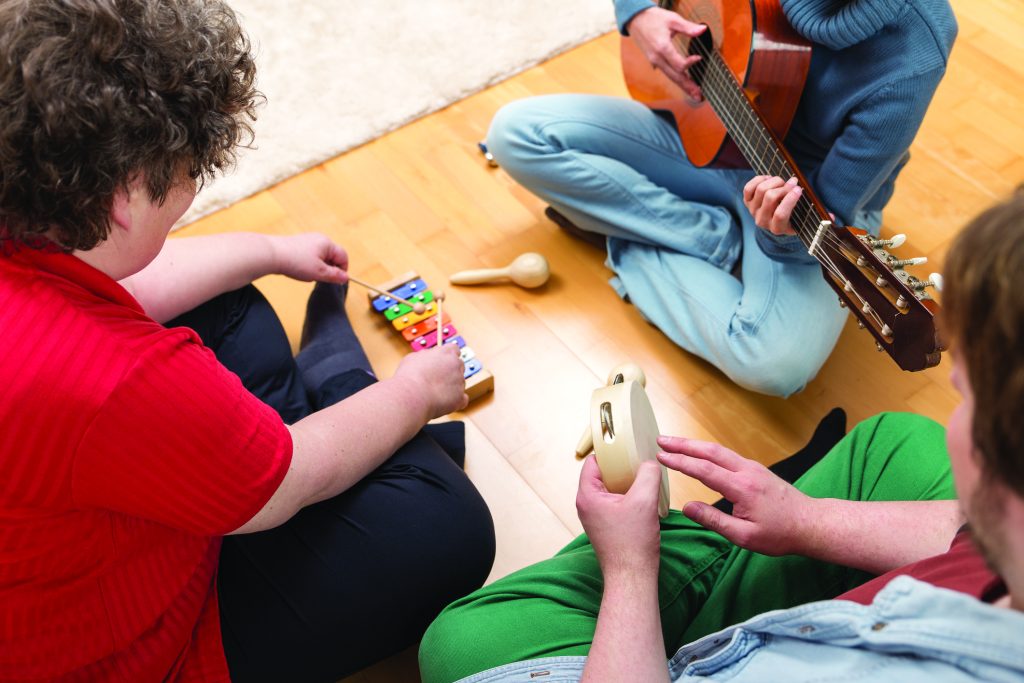
For a direct line into music therapy, Arabesque Music Conservatory is among the leading L.A. centers. Founded by two internationally renowned professional musicians, Valery Goldes and Gervais Maillard, the Arabesque Music Conservatory provides music lessons and music therapy services for all ages. Through carefully designed interventions, Arabesque’s music therapy caters to diverse individuals looking for therapeutic support for specific challenges or event to enhance their overall wellbeing. The Arabesque team provides music therapy in home, on site (for schools, healthcare facilities, community organizations and corporate settings) and on-premises at its conservatory facilities, as well as group and individual music therapy sessions.
Goldes says the organization is different from other music therapy programs in Los Angeles because it has a large network of teachers and therapists. He also notes that there is no waiting list to start receiving services. “We get students started right away,” he says.
Raquel Ravaglioli is the director of music therapy and an associate professor of music therapy at Biola University. She also has provided music therapy around the world and runs Raquel Christine Music, her private practice, in which she offers music therapy, music performance and music instruction.
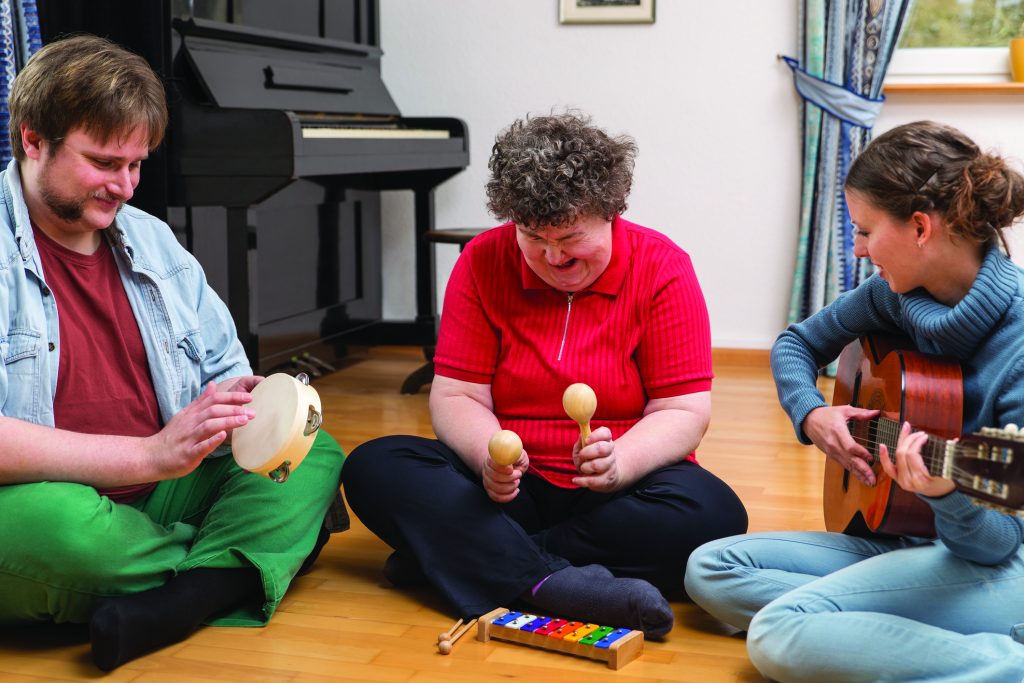
Her approach to music therapy is individualized and she accepts clients of all ages but specializes in early childhood (4 years old and under). Ravaglioli says she draws from many methods. “I have an eclectic way of working” she notes, “that uses behavior techniques, the developmental relationship-based model, humanistic and client-centered strategies to best serve my clients.”
Ravaglioli believes music therapy is effective because music “gets all parts of our brain, our motor movements, our motor part, our speech and language part, our emotions and our memories.”
CSUN offers individual and group music-therapy sessions, using music listening, songwriting, instrumental improvisation and music playing techniques for individuals of all ages. Their music therapists use a variety of instruments, including piano, guitar, percussion, autoharp, recorder, electronic instruments, harmonica and voice.
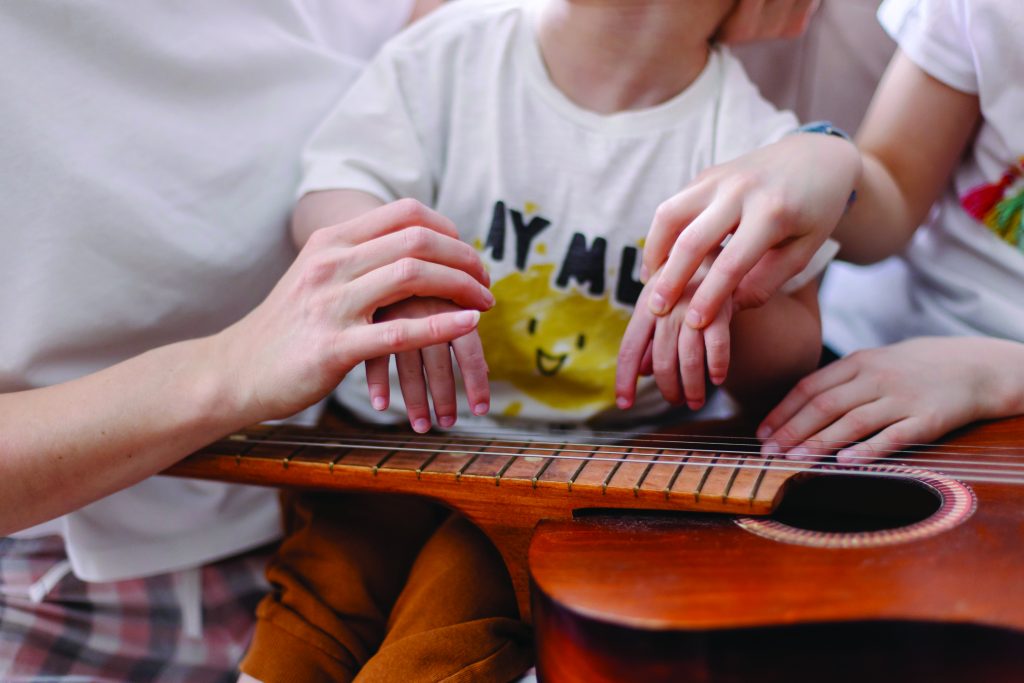
Individuals can choose to participate in any of CSUN’s four music groups available on campus in Cypress Hall. These include the Rising Star Choir, the Asteroids, the Sunshine Singers and the Kids Summer Music (Summer Group). The groups are designed for different age ranges and different goals, with some groups performing twice a year or others focusing on rehearsals. Cost also varies per group, and there is no cost for Rising Star Choir and the Asteroids, as the Rising Star Music Fund provides tuition for all participants.
CSUN also has a music therapy community outreach program that provides services to other facilities in Los Angeles. Currently, the university is partnering with Huntington Hospital and providing services to its patients.
Kaylie Wang is a student at California Polytechnic State University, San Luis Obispo studying English and Chinese. She is also a staff writer for Mustang News, where she primarily writes Opinion columns. Read her work at linkedin.com/kayliewang.







































